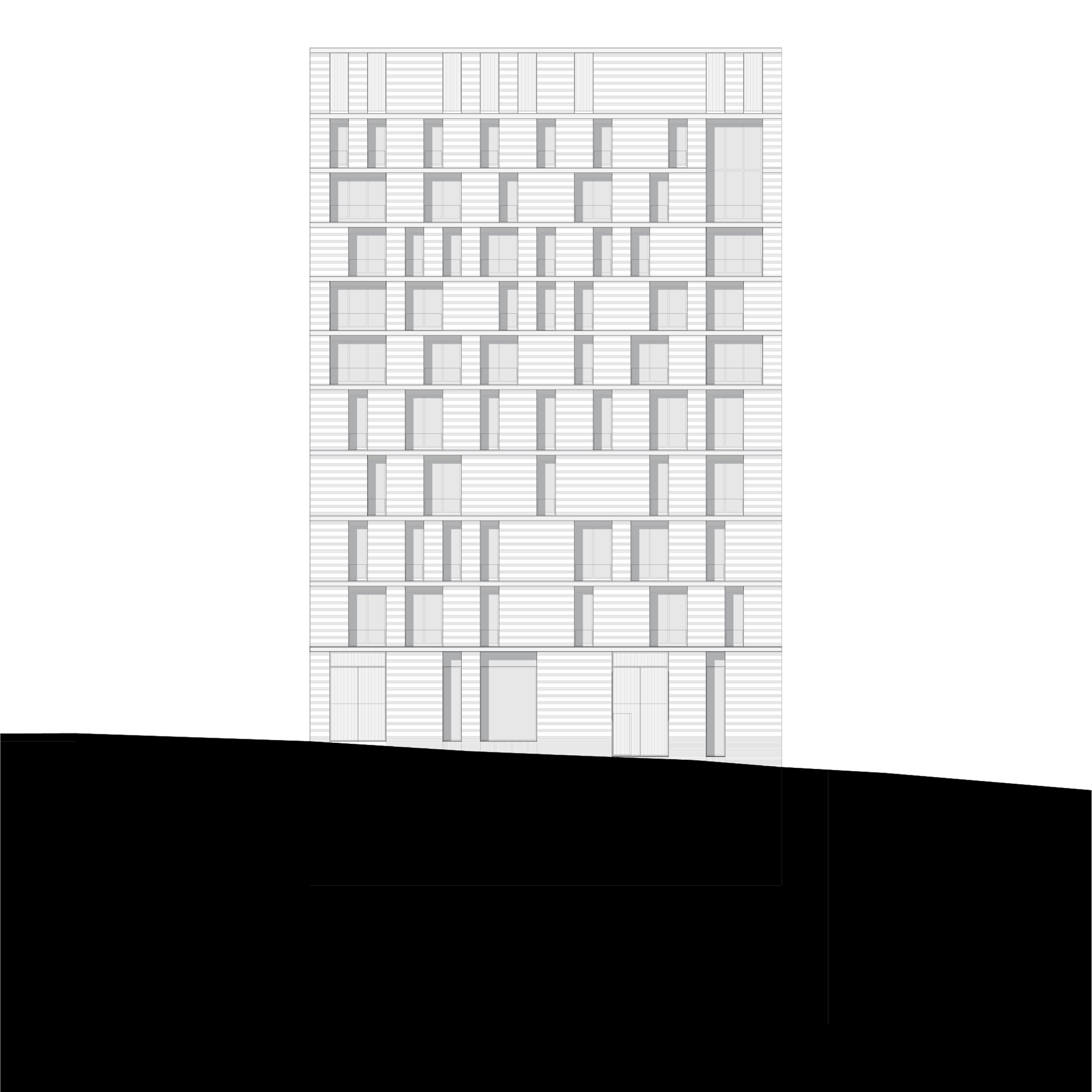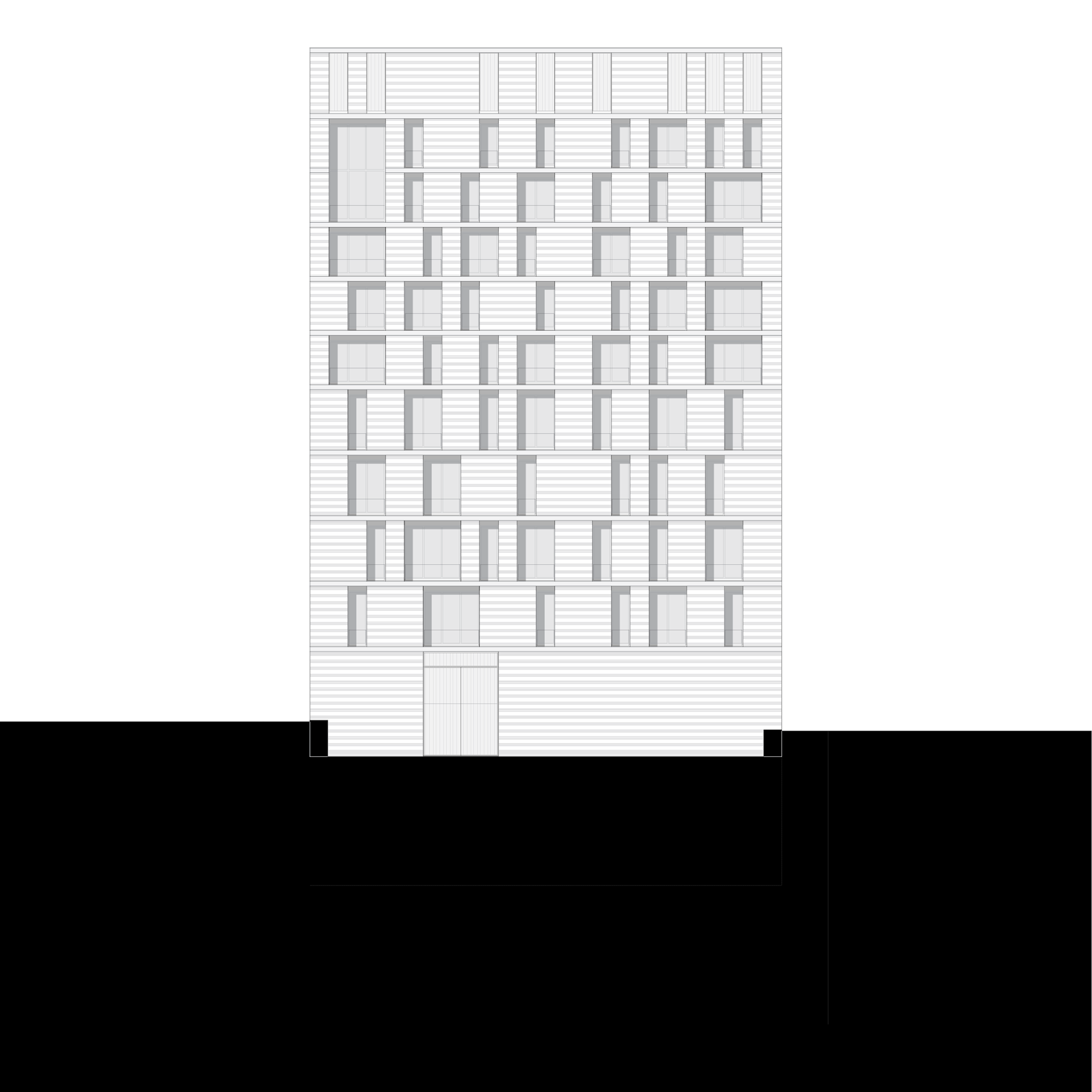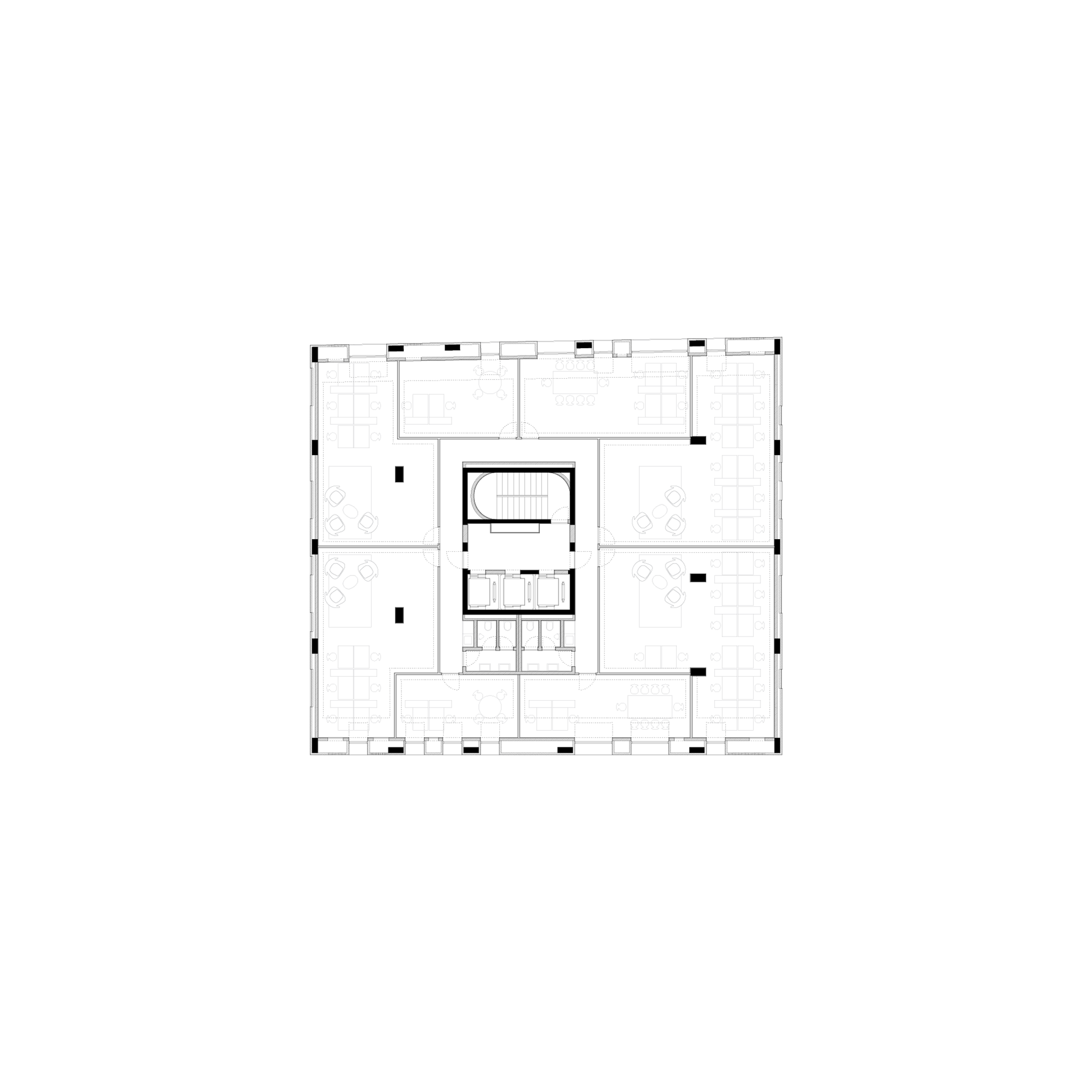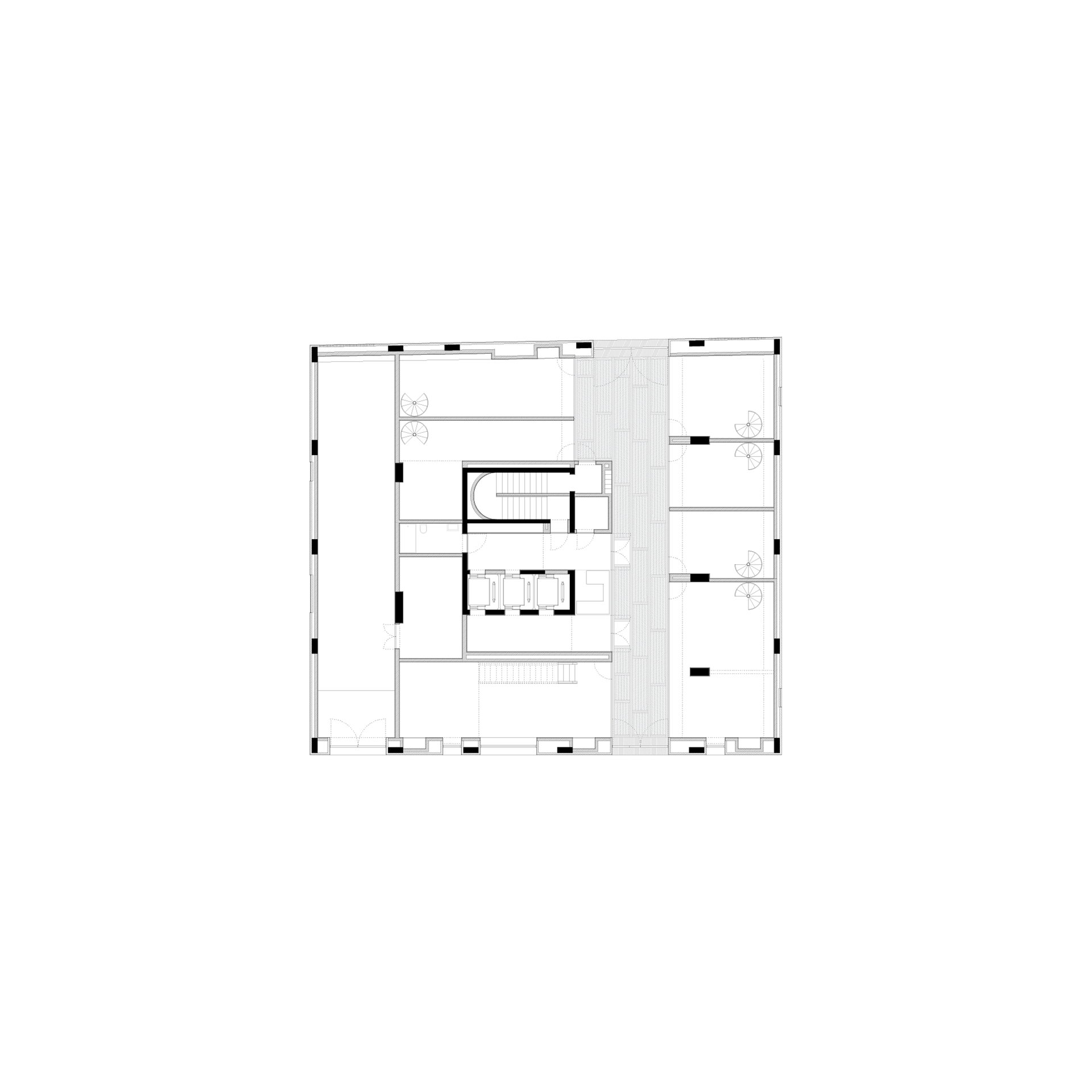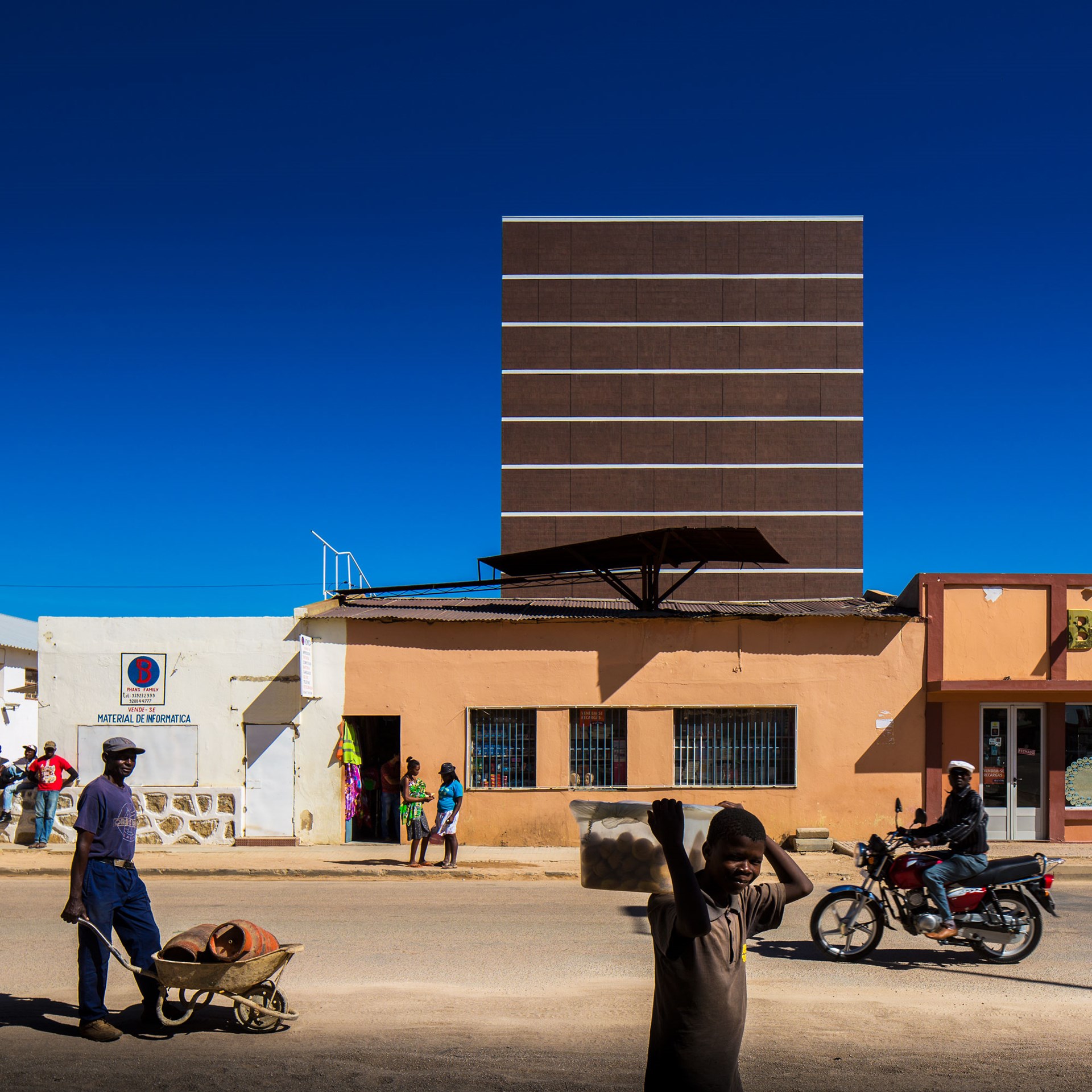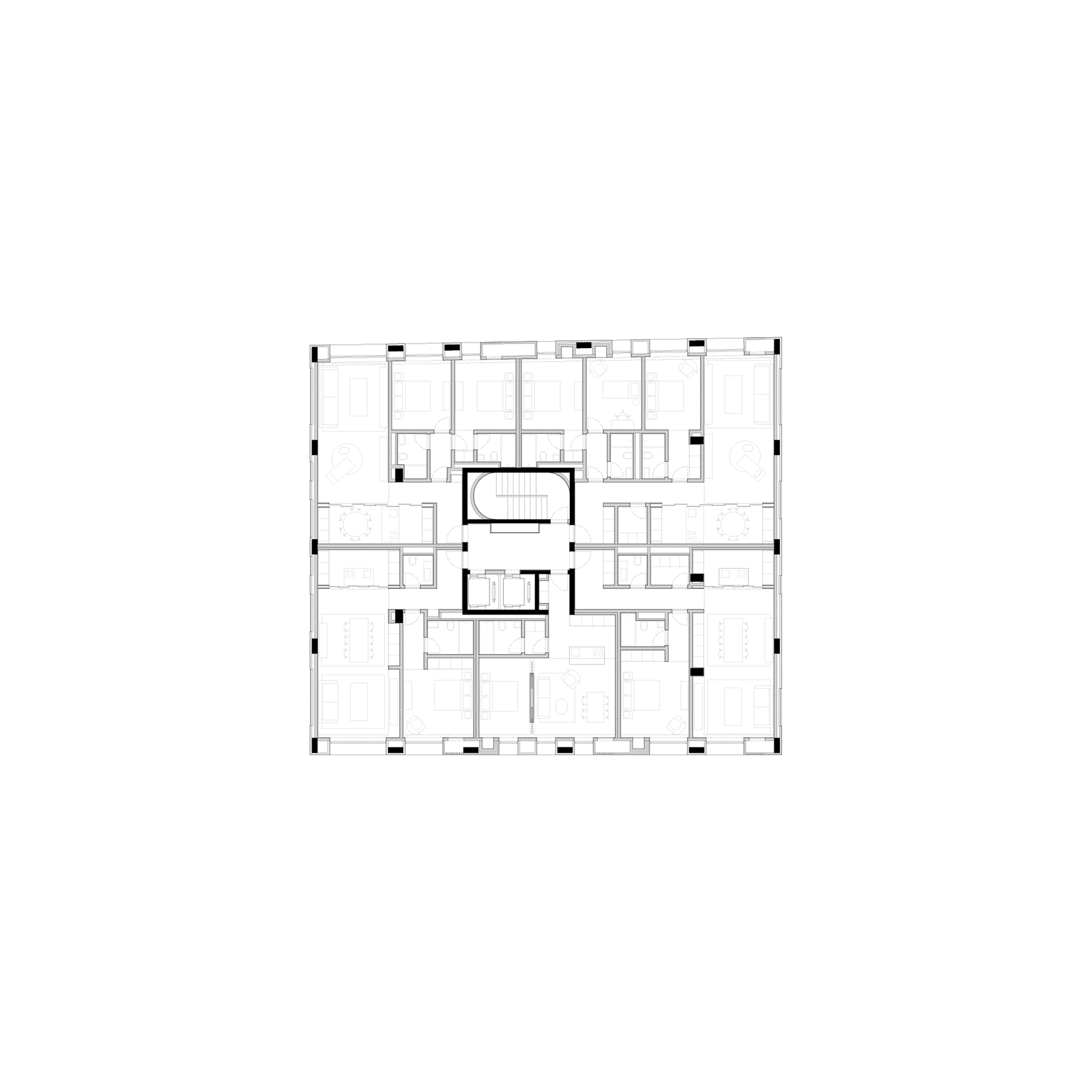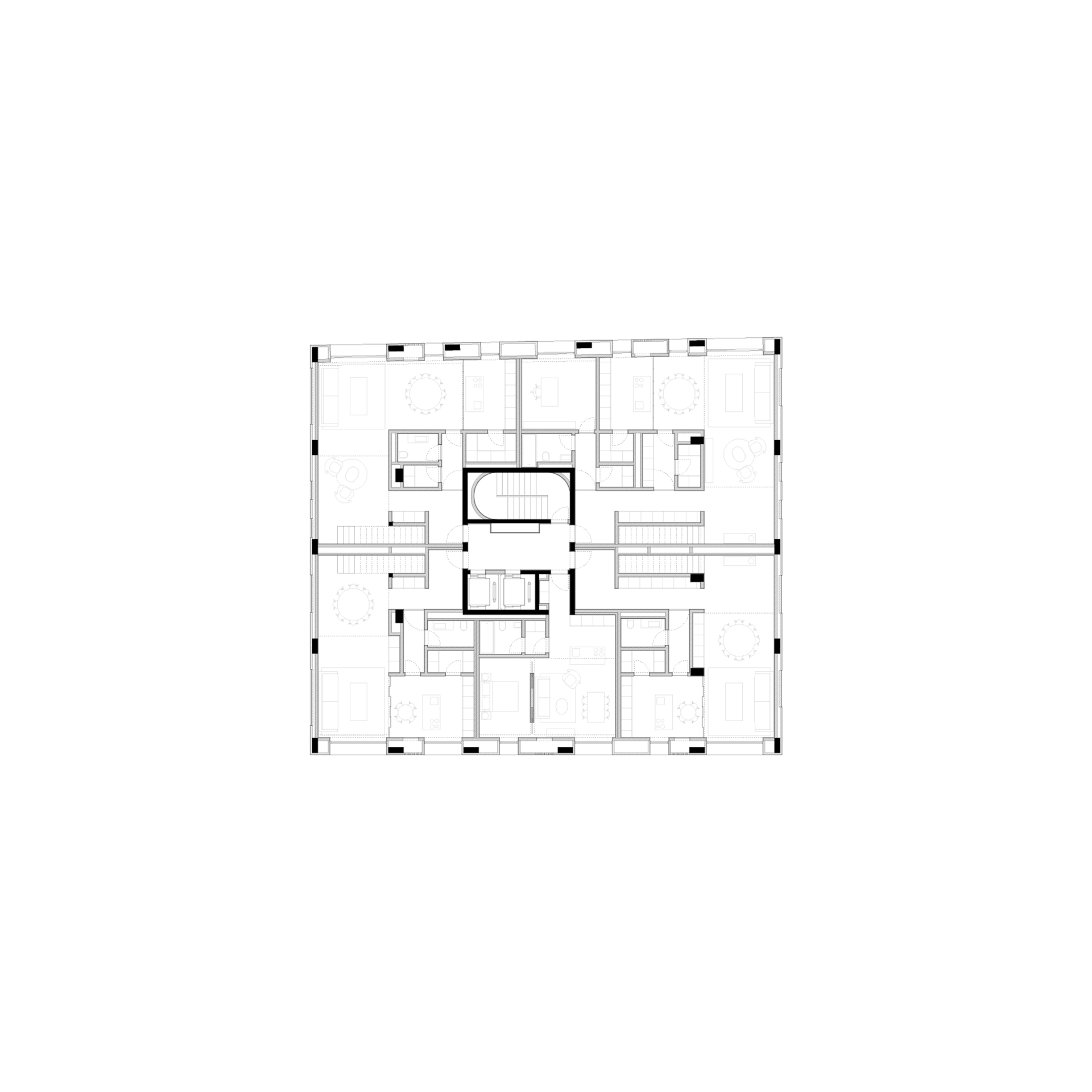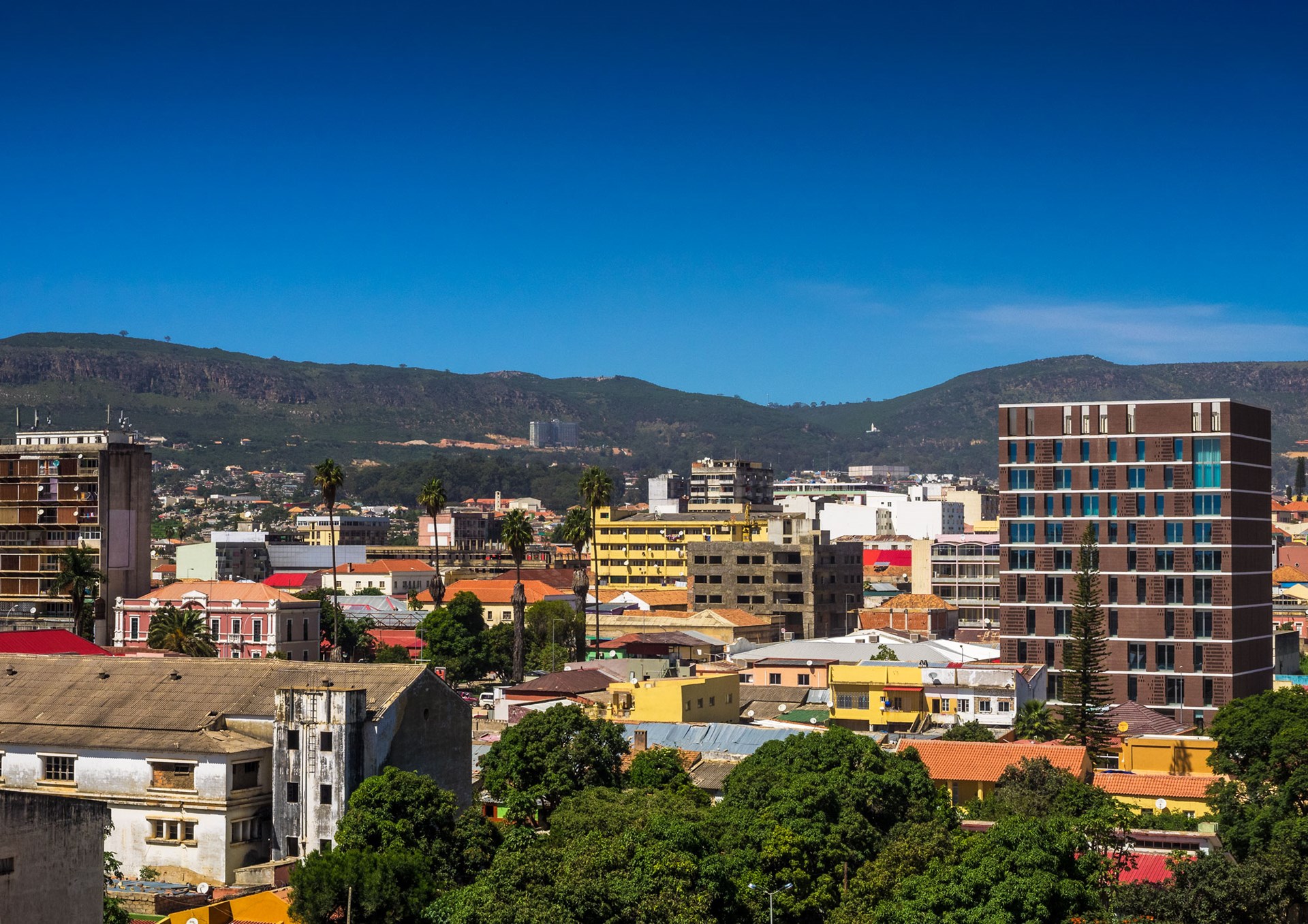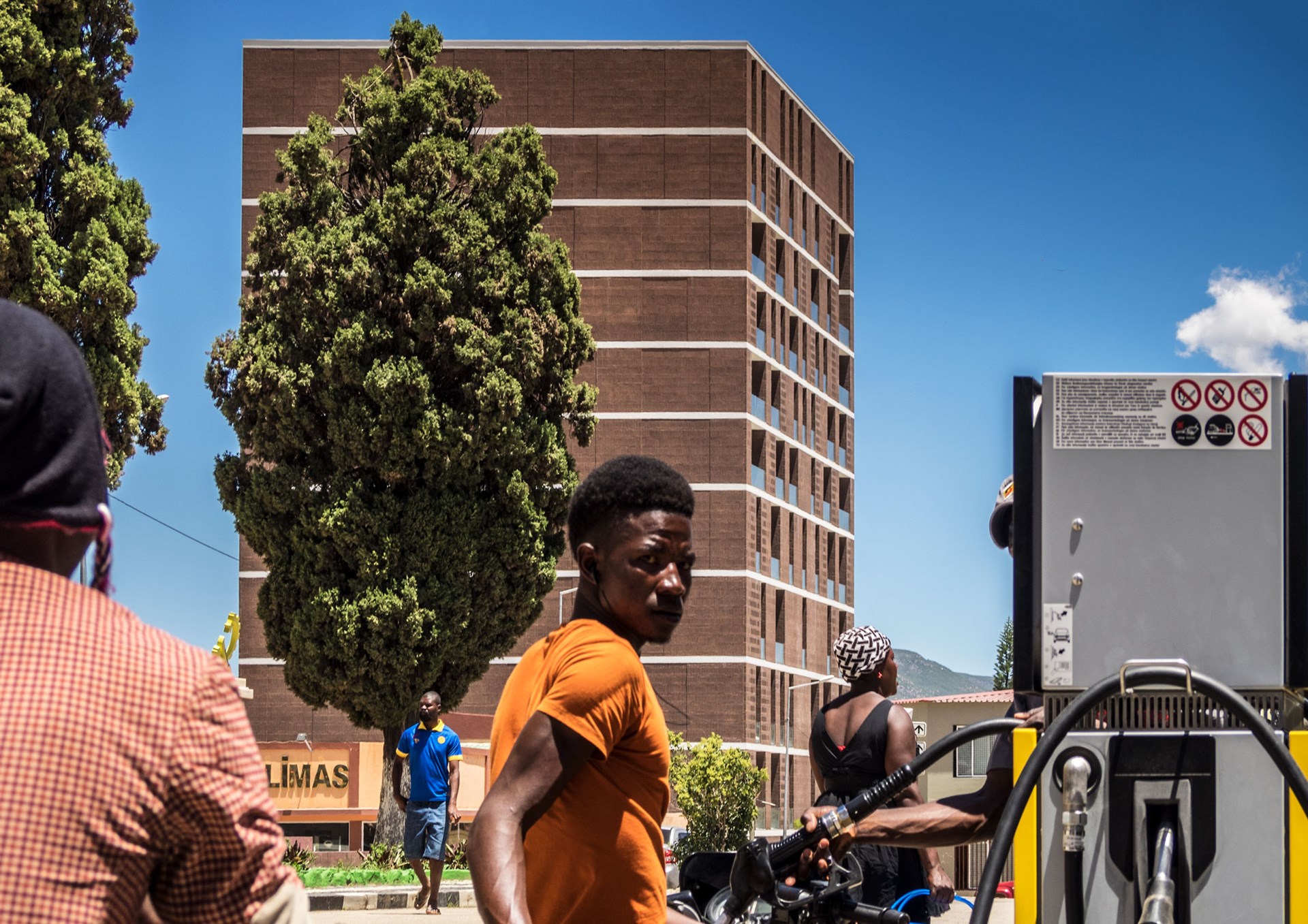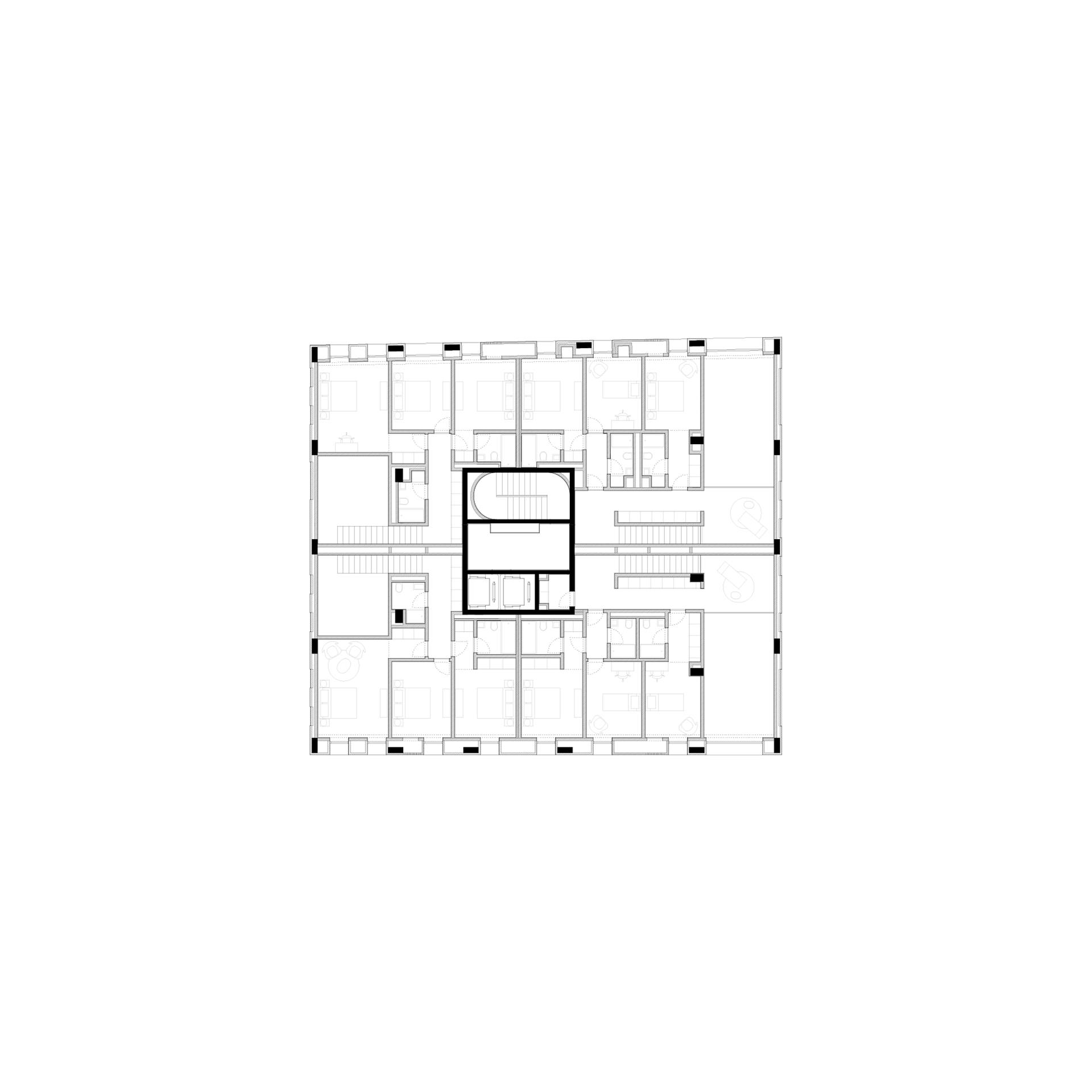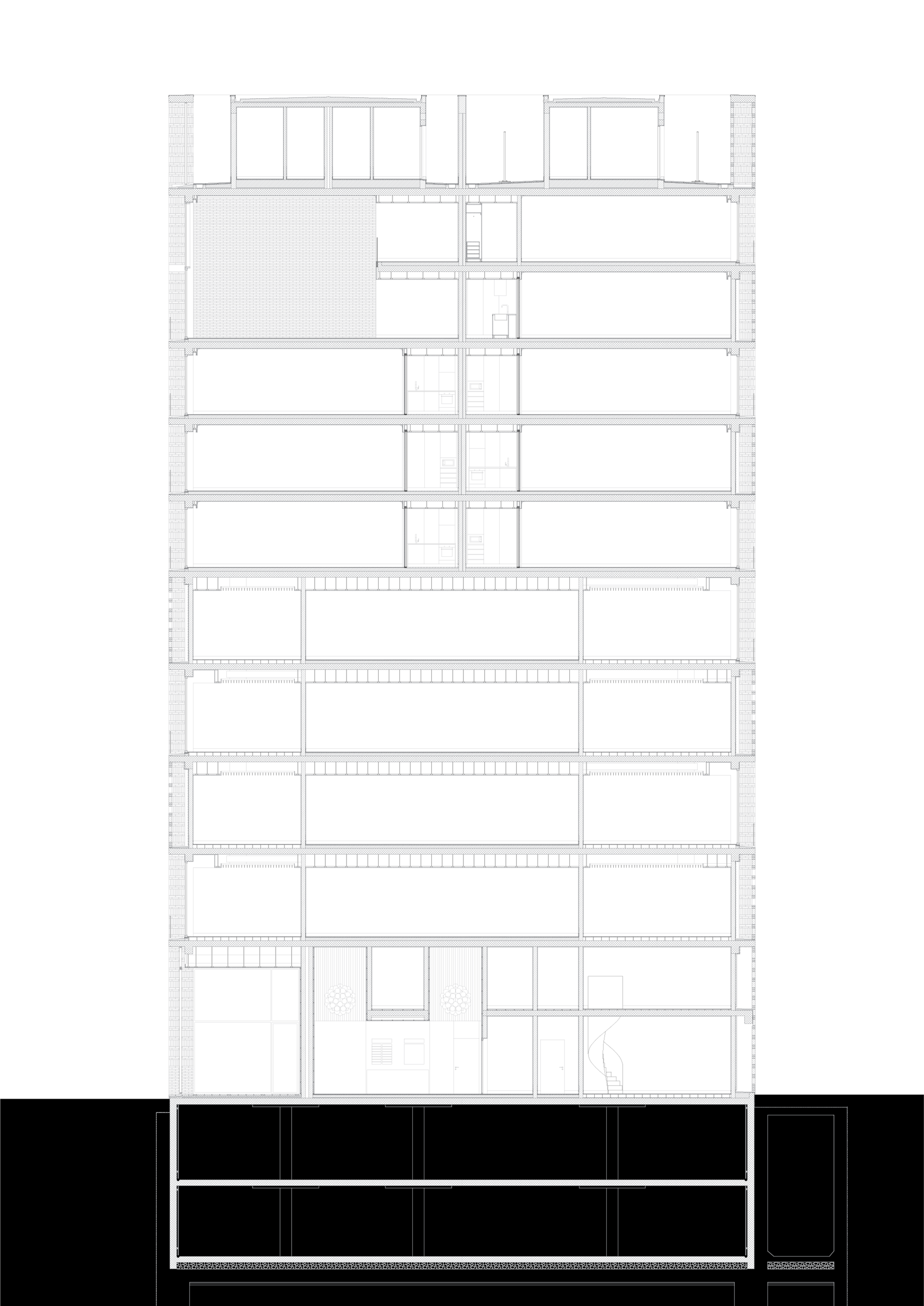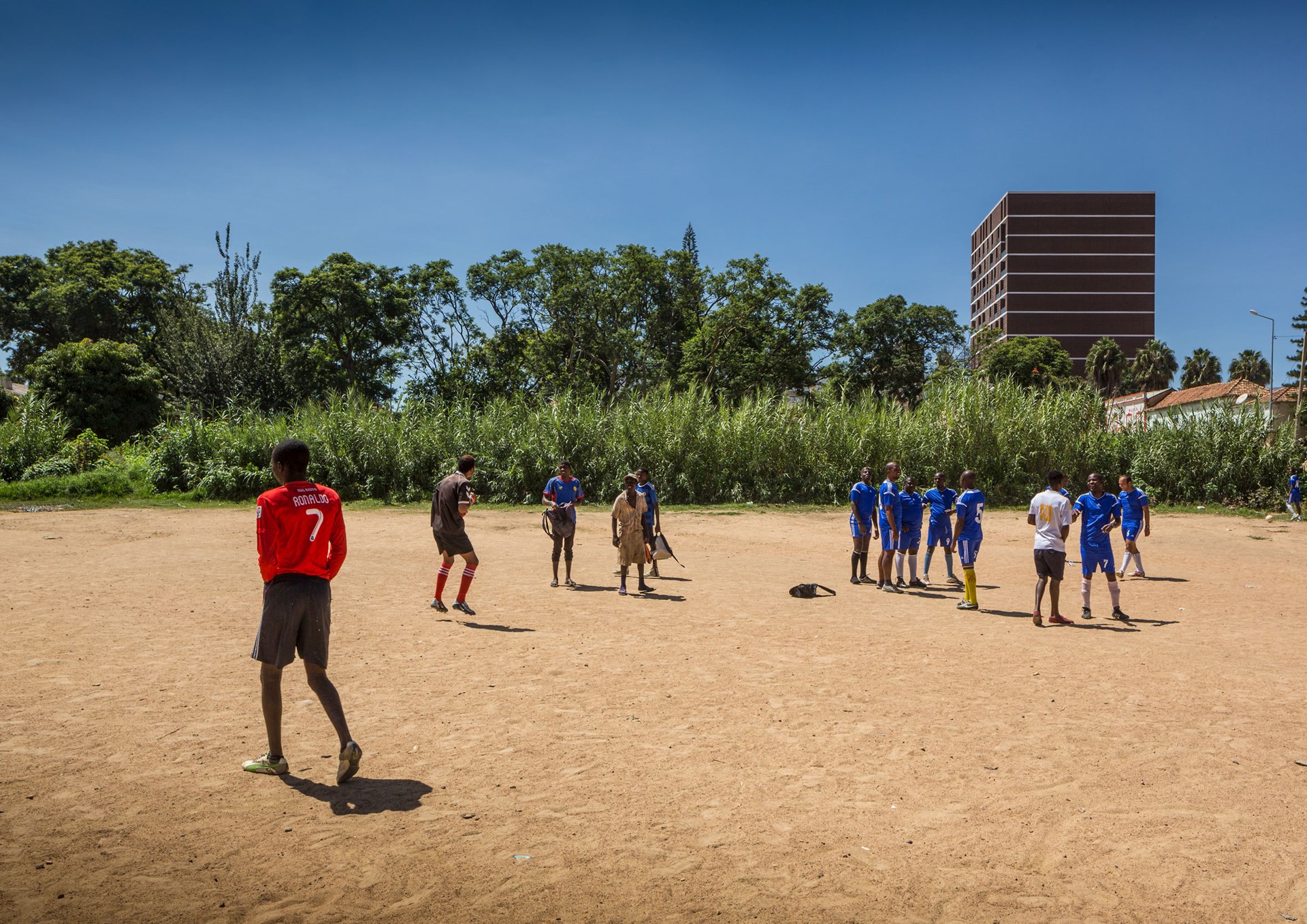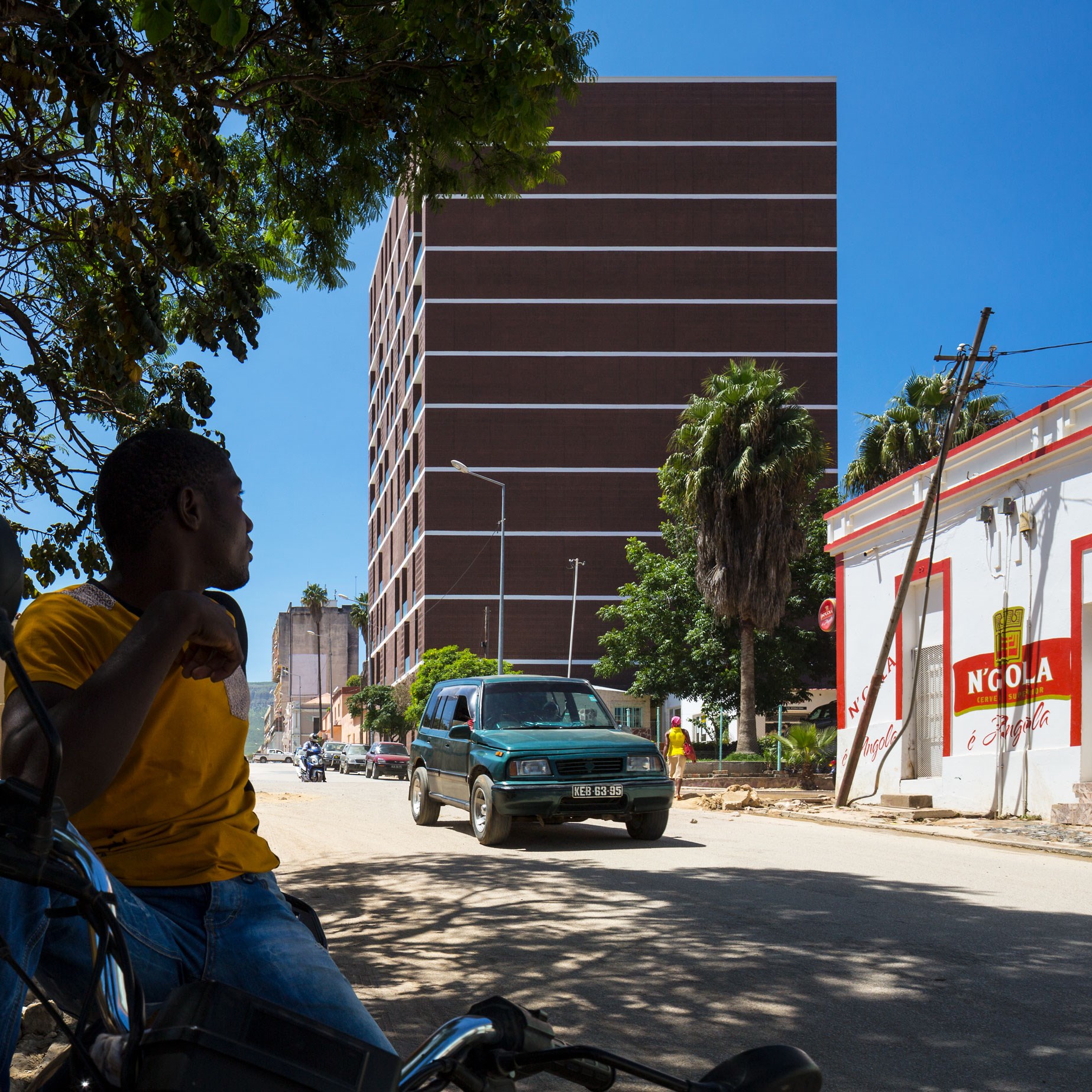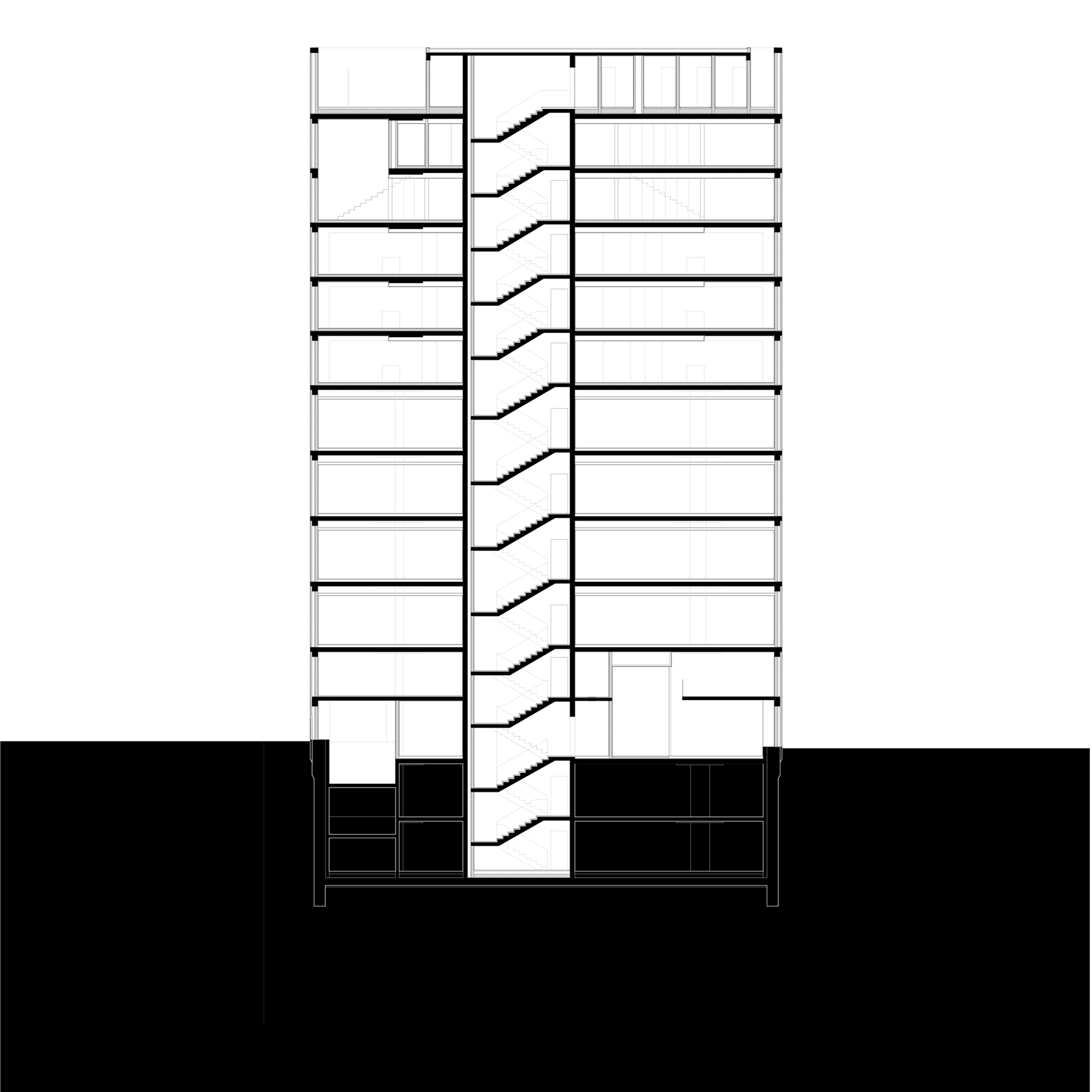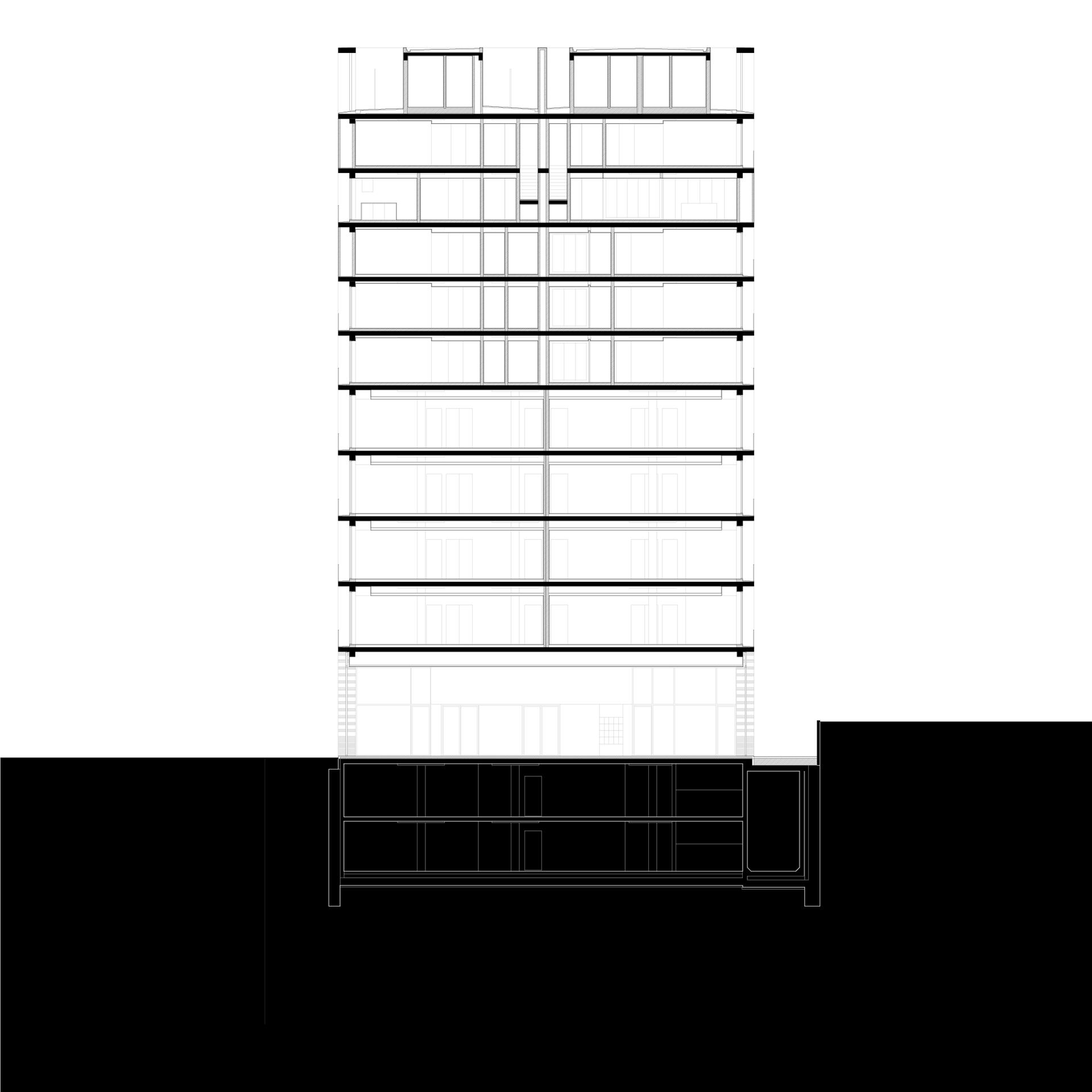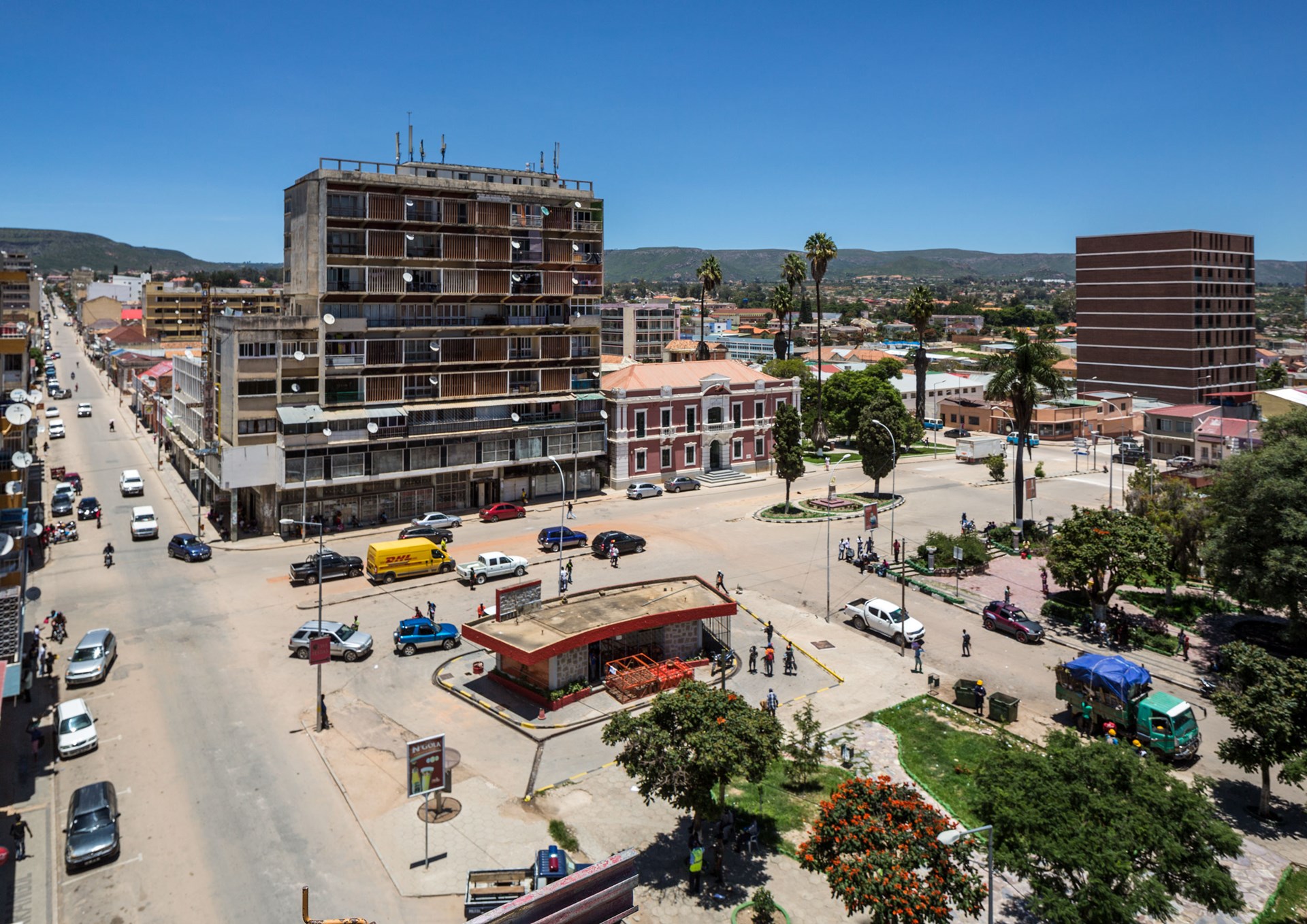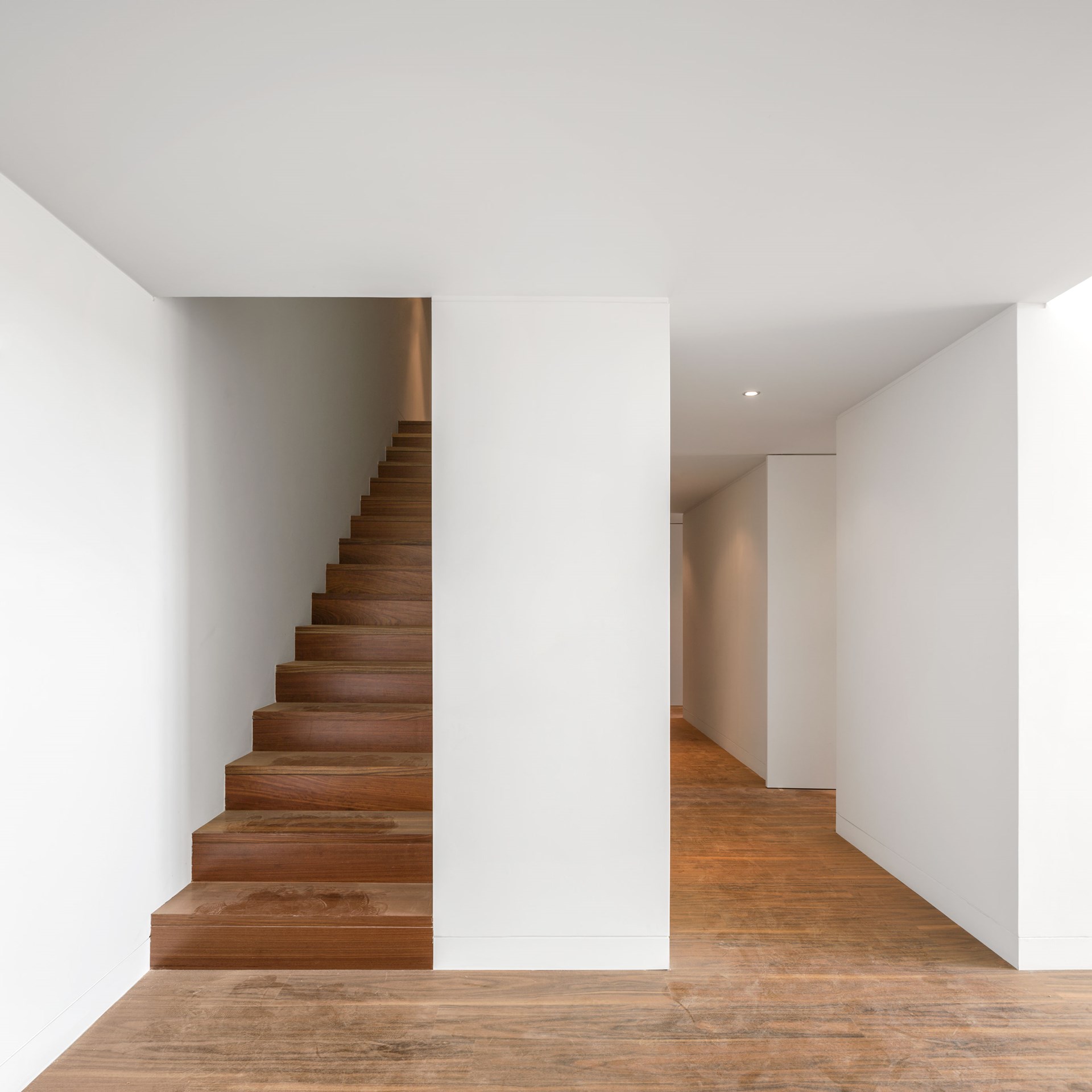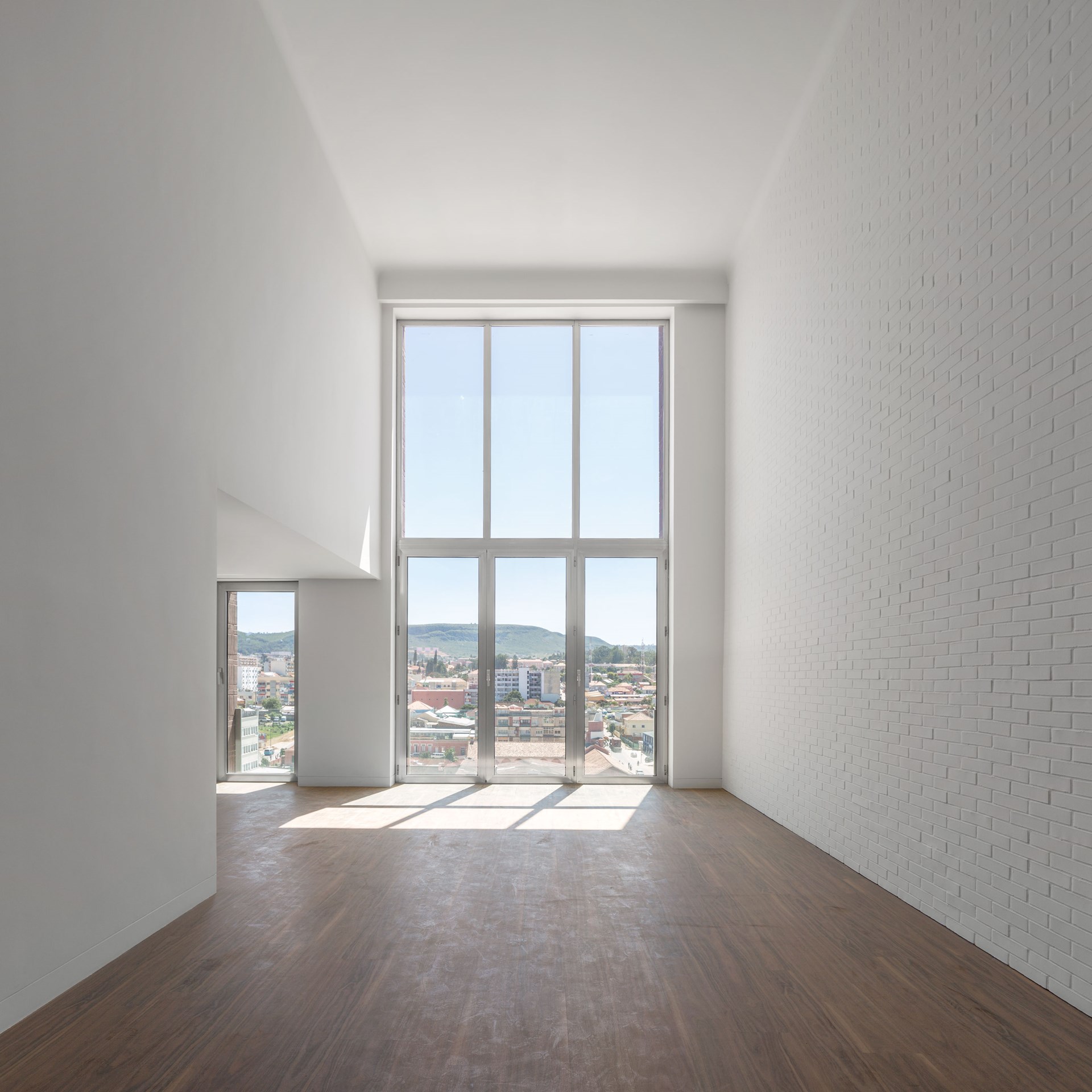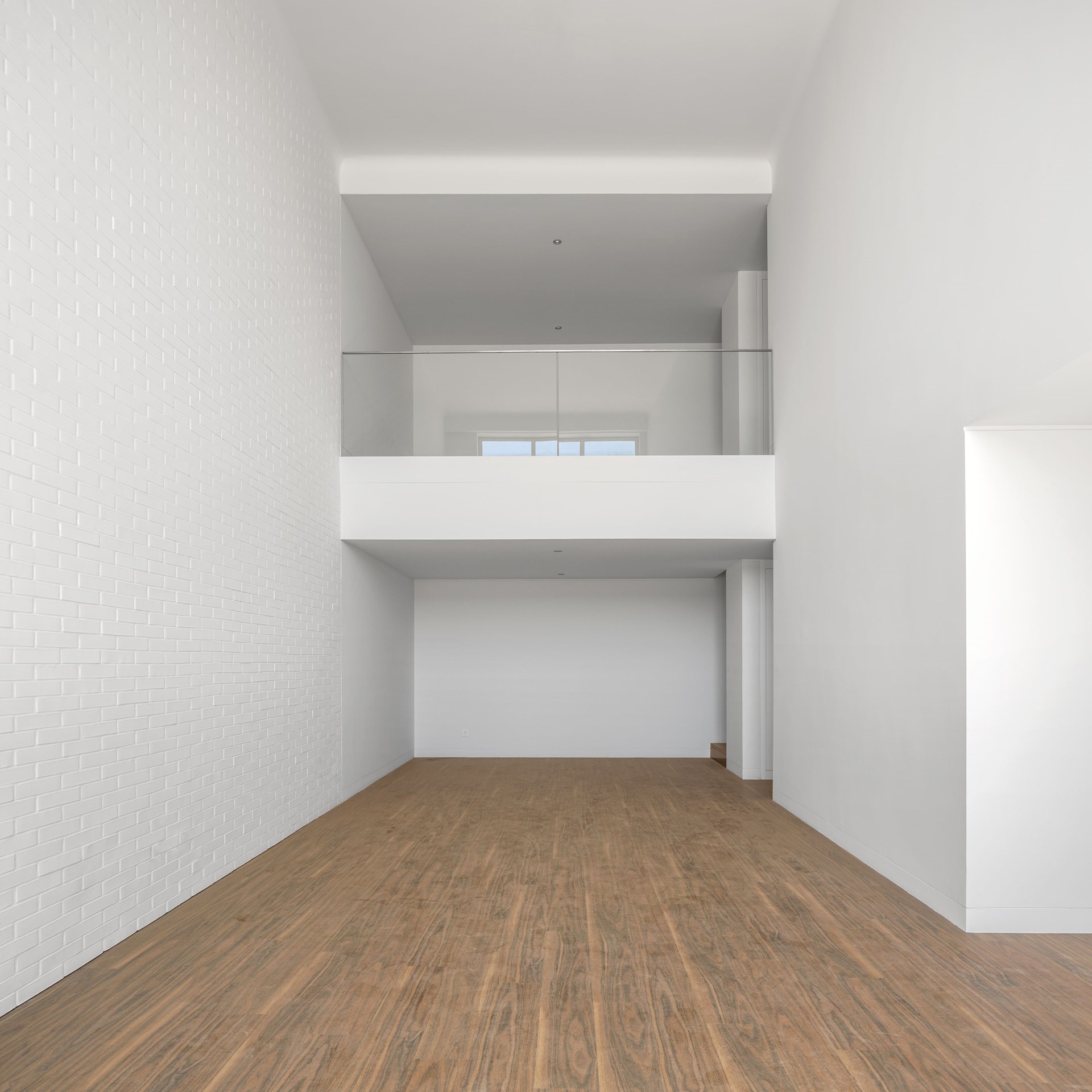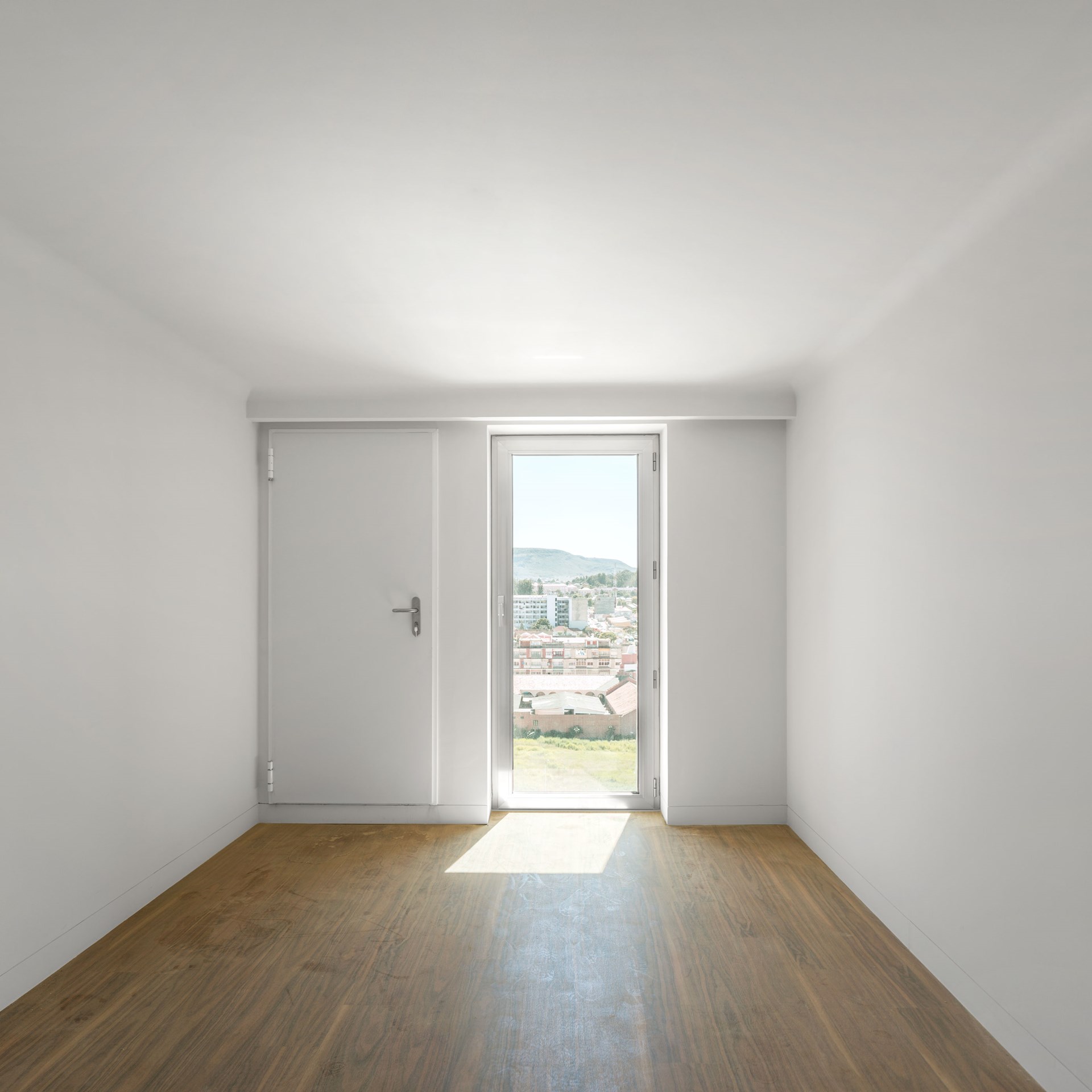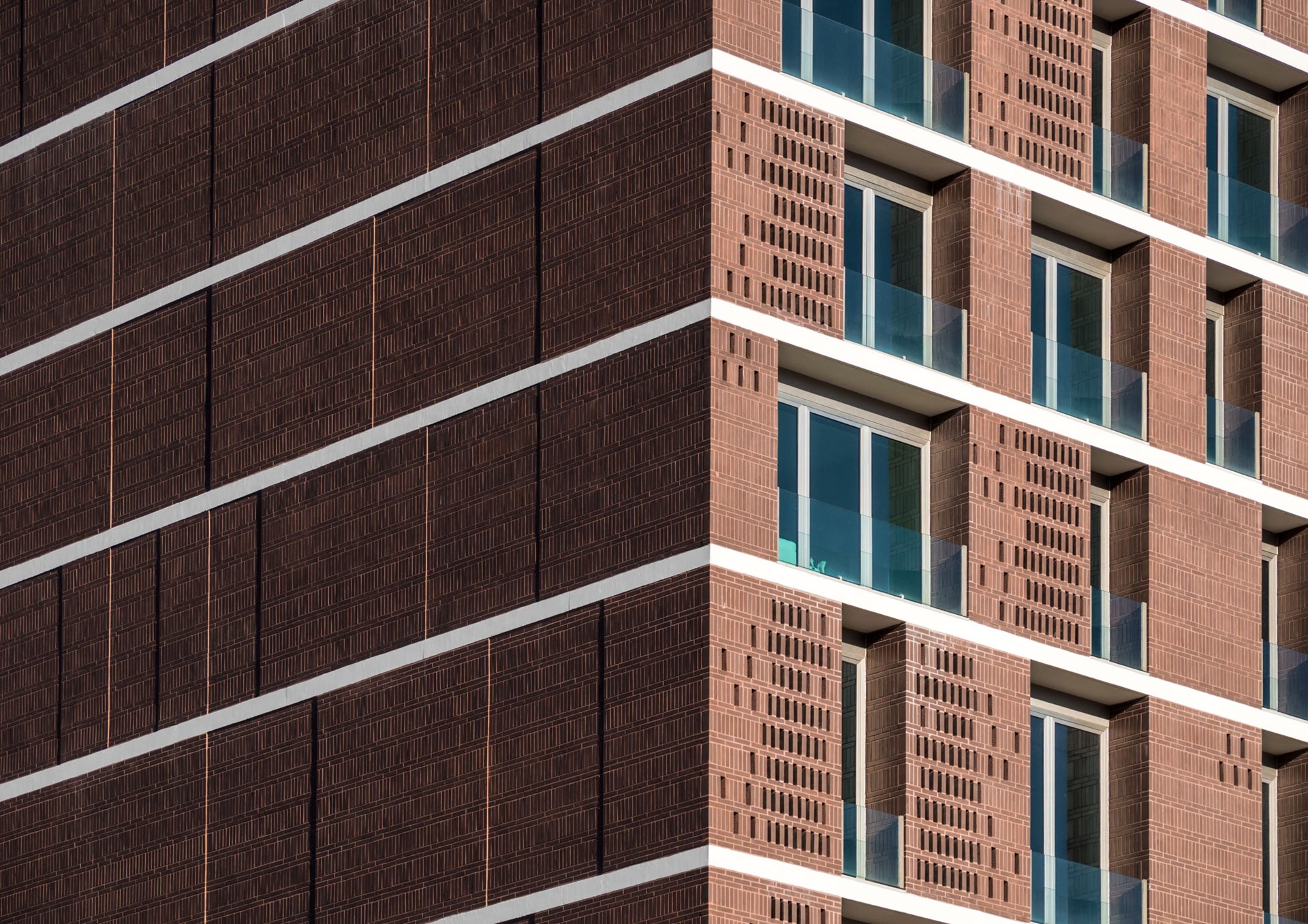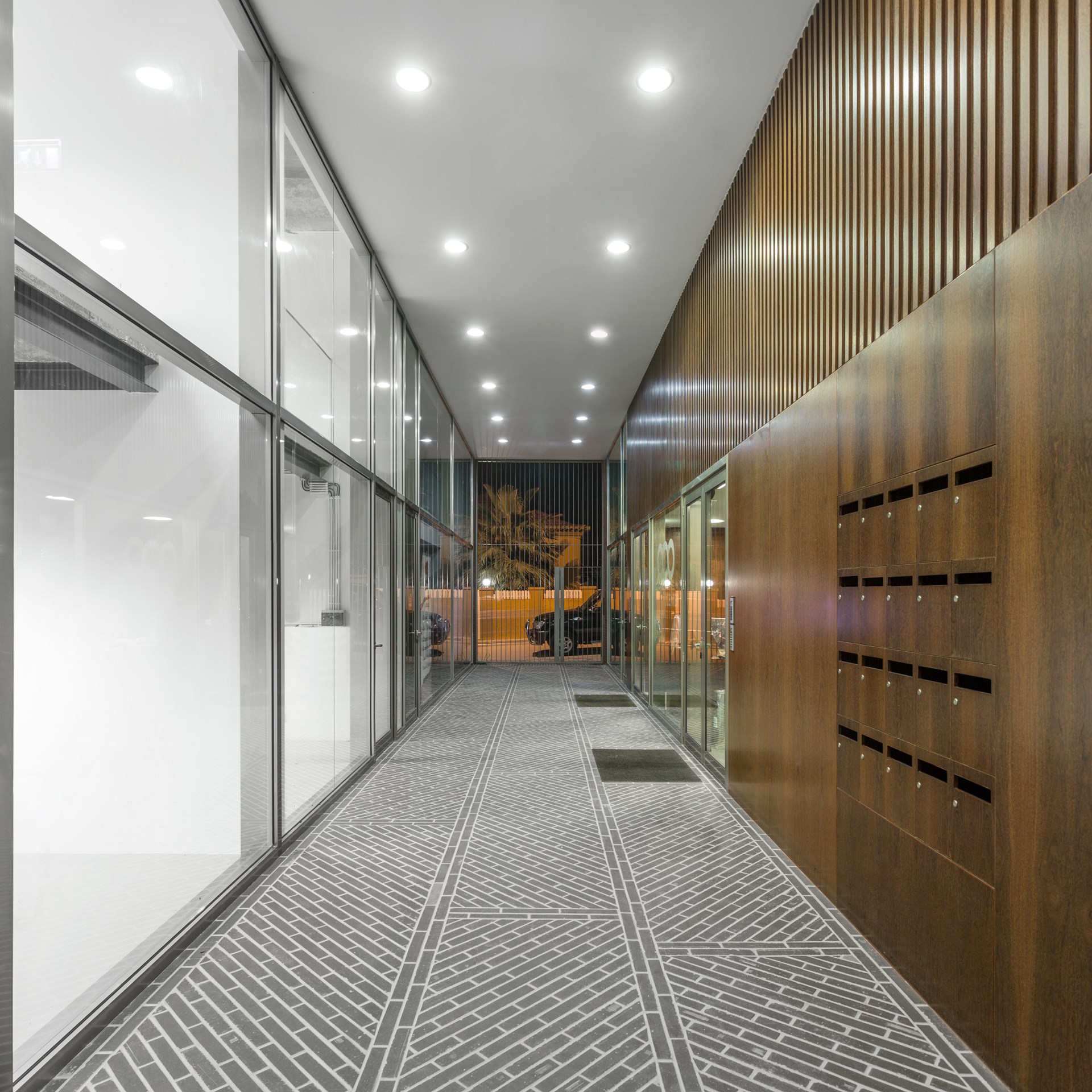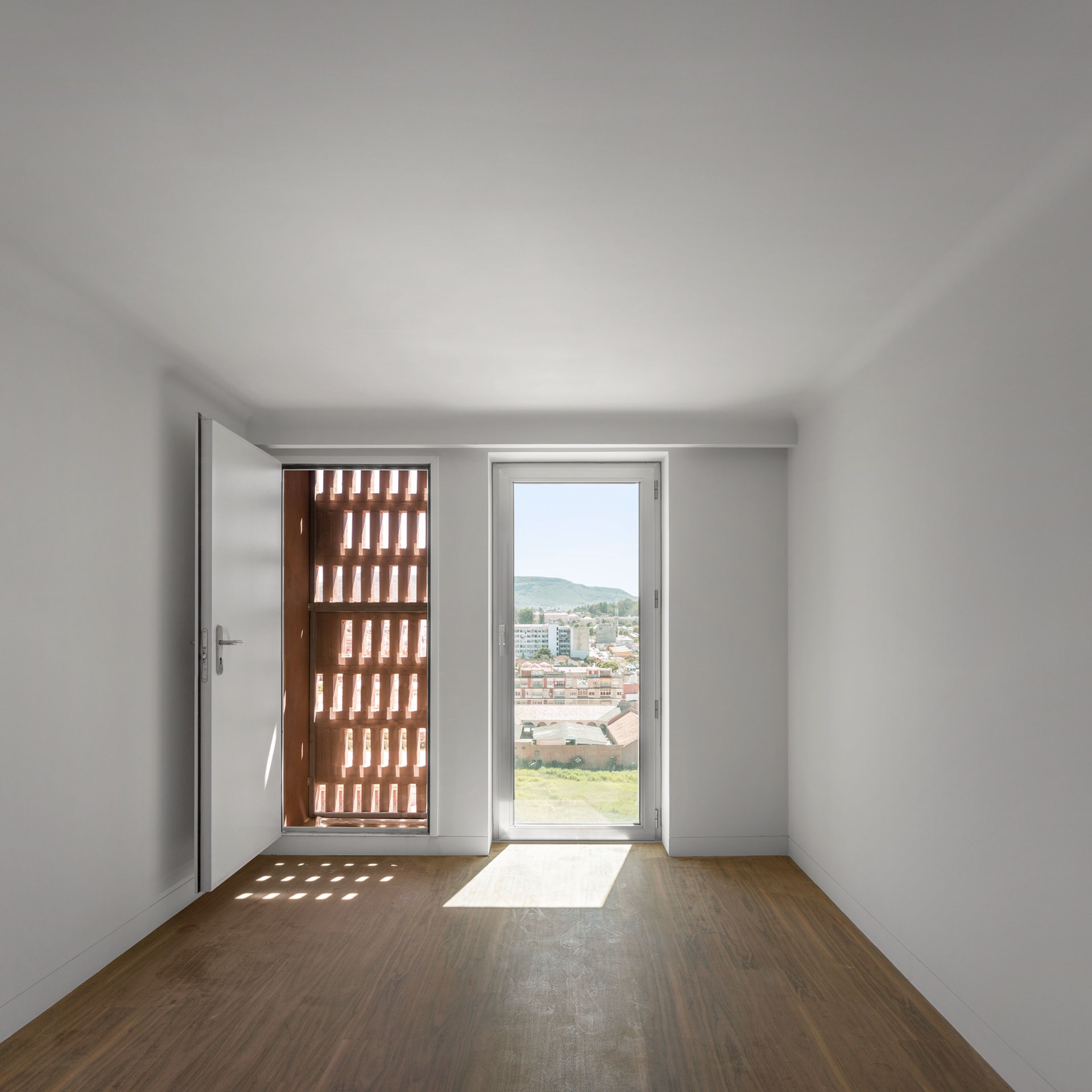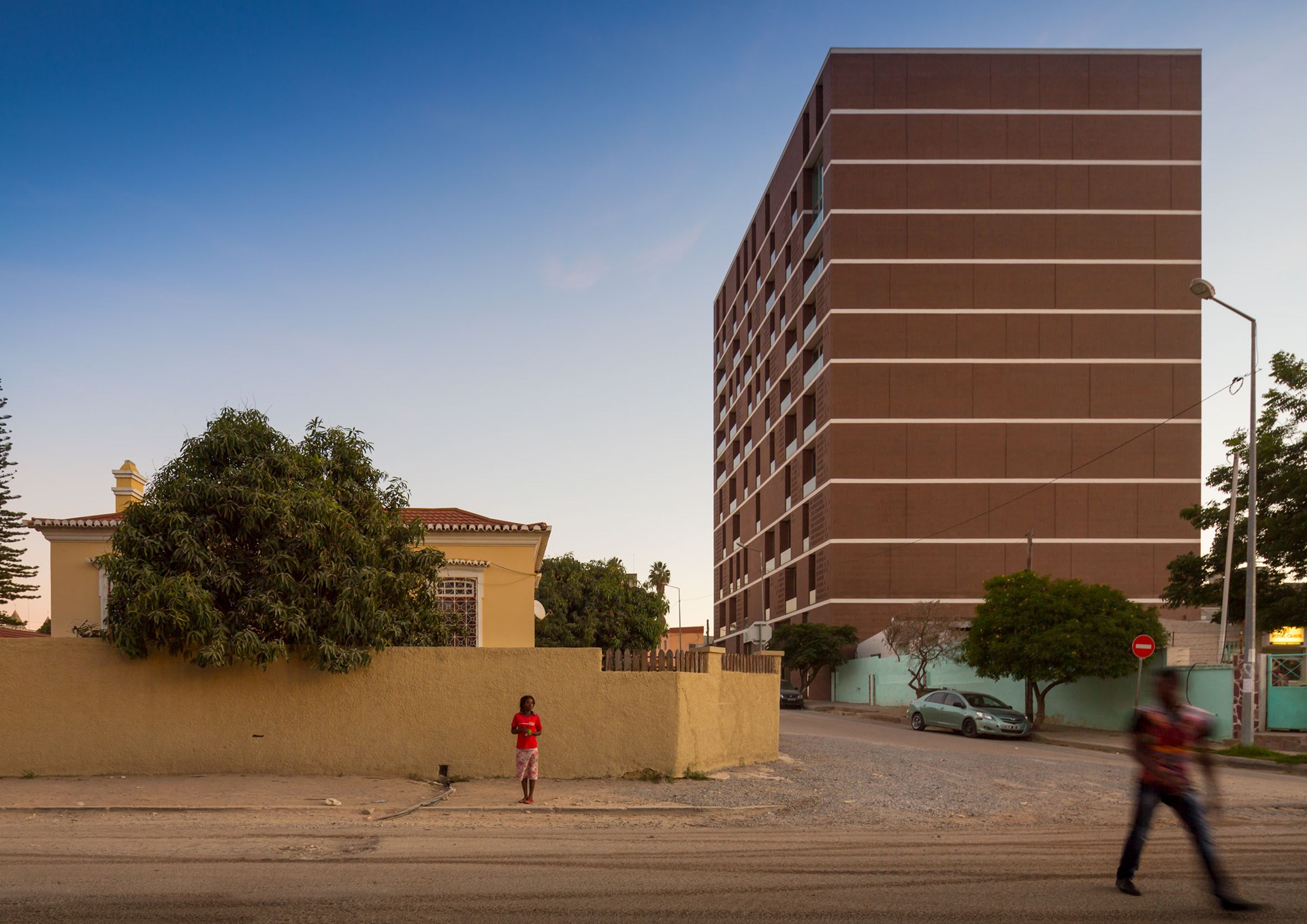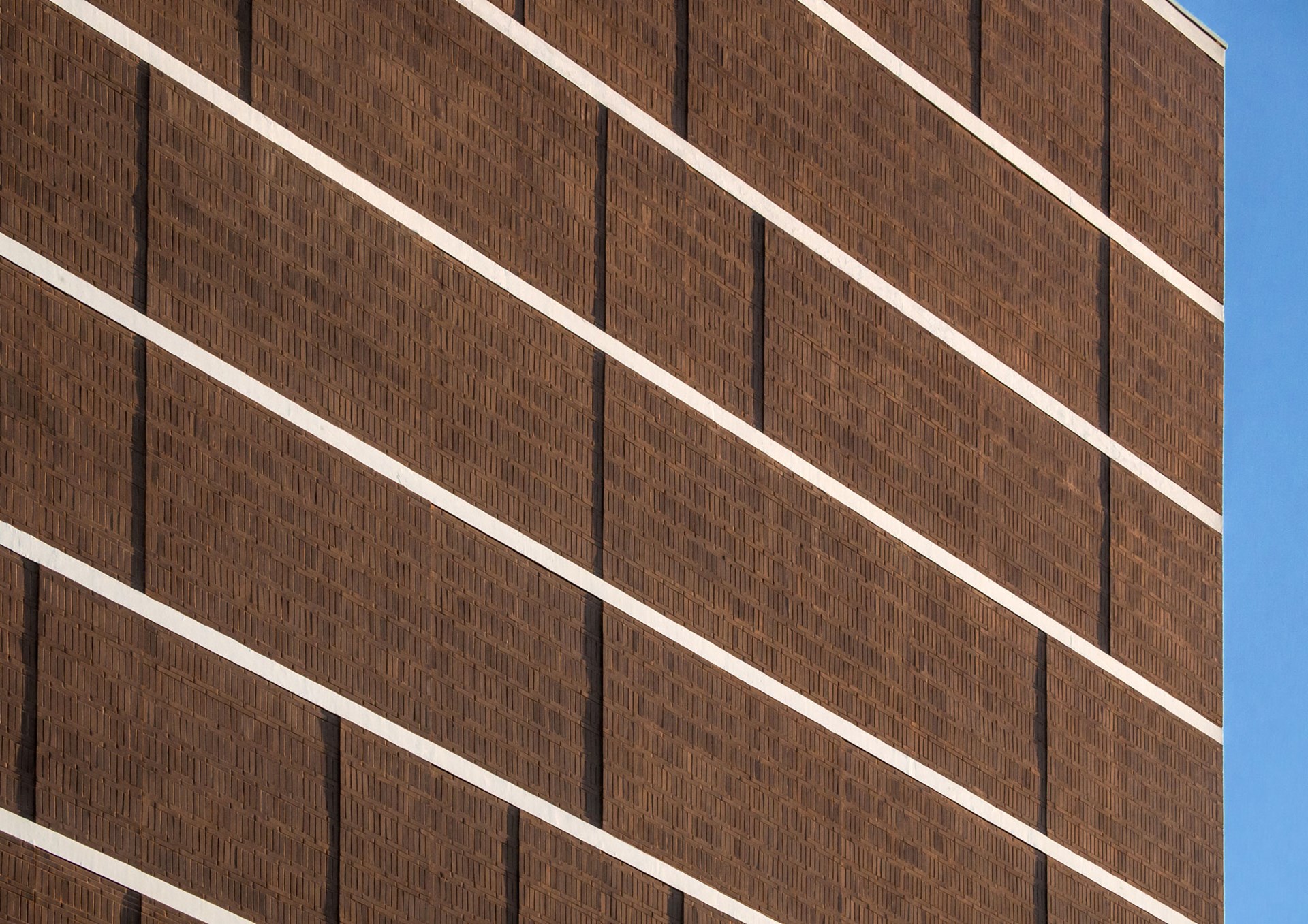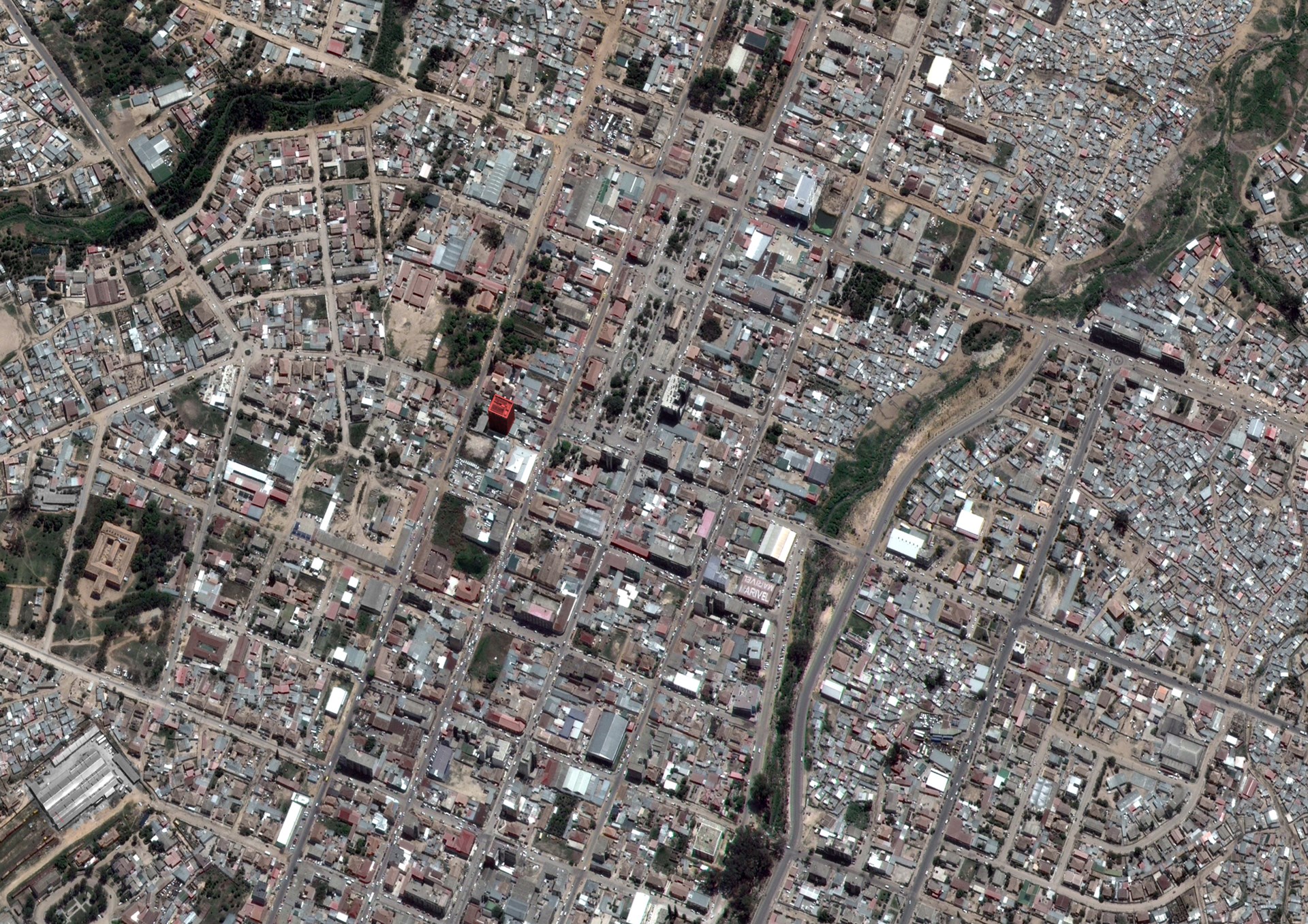-
Lubango Centre / Promontorio
-
- 04 May 2017

- Edwin Seda
- Residential , Selected Works , Apartments , Sustainability , Urban , Urban Renewal ,
From the Architects:
The peace and prosperity brought by the end of the Angolan civil war witnessed the beginning of development and urban reconstruction. At first exclusively in Luanda, it has gradually extended to hinterland cities such as Lubango, the capital of Huila district.

This small town, founded in the early 20th-century, is one of the main references of Portuguese colonial urbanism in Africa. This mixed-use building is set in a consolidated area, next to the main square and surrounded by a few remaining buildings of Portuguese modernist legacy, some of which of remarkable quality, although much dilapidated.

With 9-storey, the building includes residential, offices and shops served by a common access and underground parking. On the ground floor, a sheltered and cross-ventilated open gallery generates a shaded and fresh space, allowing direct access to the shop fronts, to the residential and offices lobbies, and to a small backyard coffee-shop terrace.

Above ground-level, there are, respectively, 4 levels of offices, 3 levels of single-storey apartments and, in the last 2 levels, duplex units, including variants of double-height studios to 3-bedroom units.

The roof terrace accommodates residents’ storage rooms, laundry services, and technical areas. The construction concept is based on a principle of robustness that should enable this solid and simple building to guarantee comfort, durability and low maintenance.

The module of recessed balconies provides the natural shading resulting from its depth, in addition to an accessible and ventilated façade technical compartment. The massiveness of the masonry walls is interrupted by the datum of concrete slabs, which function as a continuous lintel.

This tectonic expression is reinforced by the materiality of the brickwork laid in ‘soldier-and stretcher’ courses, evocative of the rich textures and colours of African rammed earth and pottery.

Finally, the stratification of this materiality is emphasized by the white paint on concrete lintels and bronze aluminium window frames. Anticipating a long period until the adjacent properties are built, along with the northwest and southeast windowless facades, we have chosen to maintain the same masonry with a brickwork composition similar to the main façade.
Datum Antique: Biermann and Theron's Crasulla Duplex Apartments
KwaZulu Natal Institute of architects calls it the ” most provocative building of the decade”, an fluid recipe of well anticipated cuboids and forms that marry each other like they have been in love for years. This is the Crasulla Duplex apartments, an ego boost to the Durban skyline i...
SHARE YOUR THOUGHTS
-
If you want your own avatar and keep track of your discussions with the community, sign up to archiDATUM >>
































